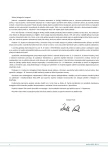-
Medical journals
- Career
A REVIEW OF THE INVESTIGATION AND MEDICAL MANAGEMENT OF BENIGN PROSTATIC HYPERPLASIA
Authors: A. Mangera; C. R. Chapple
Authors‘ workplace: Sheffield S10 2 JF, UK ; Glossop Road ; Glossop Road Sheffield S10 2 JF, UK ; Clinical Research FellowSheffield Teaching Hospitals ; Sheffield Teaching Hospital
Published in: Urol List 2010; 8(4): 50-57
Overview
This review will cover the assessment of benign prostatic hyperplasia (BPH) and discuss the established and upcoming medical treatment options available to an urologist. We evaluate the evidence base underlying current guidelines thereby providing recommendations for a structured approach to managing patients with lower urinary tract symptoms (LUTS) thought to be secondary to BPH. We examine the indications for the different alpha antagonists, 5 alpha reductase inhibitors and review the data for combination therapy. The use of new therapies such as intraprostatic injection of botulinum toxin therapy may become established, however much work still needs to be carried out as the evidence base, as is so often the case, is inadequate to suggest use of new emergent techniques outside of clinical trials. Surgical therapy is being used less frequently to manage BPH, however it is still the treatment of choice when complications of BPH such as retention have developed. In conclusion LUTS are highly prevalent in elderly males, being consequent upon many different pathologies, and need appropriate assessment, counselling, management and follow up for which there are many modalities of available treatment.
KEY WORDS:
benign prostatic hyperplasia (BPH) - lower urinary tract symptoms (LUTS) - bladder ouflow obstruction (BOO) - alpha antagonists - 5 alpha reductase inhibitors - combination therapy - discontinuation therapy - botulinum toxin
Labels
Paediatric urologist Urology
Article was published inUrological Journal

2010 Issue 4-
All articles in this issue
- TREATMENT OF LOCOREGIONAL DISEASE IN PATIENTS WITH PENIS CARCINOMA
- MANAGEMENT OF EARLY STAGE TESTIS CANCER
- PENIS CARCINOMA IN THE POPULATION OF NIGERIAN MEN
- CONTEMPORARY CONCEPTS ON INGUINAL LYMPH NODE DISSECTION FOR PENILE CANCER
- PENILE CANCER: A THERAPEUTIC CHALLENGE
- TESTOSTERONE REPLACEMENT THERAPY AFTER PROSTATE CANCER: THE EMERGENCE OF A NEW CONCEPT IN CURRENT UROLOGIC PRACTICE
- THE MODERN ENDOCRINE EVALUATION OF THE INFERTILE MALE
- WHAT IS CONSIDERED EROTIC IN NONVERBAL COMMUNICATION
- A REVIEW OF THE INVESTIGATION AND MEDICAL MANAGEMENT OF BENIGN PROSTATIC HYPERPLASIA
- IMPLICATION OF RANK LIGAND INHIBITION FOR THE TREATMENT OF SKELETAL RELATED EVENTS IN METASTATIC PROSTATE CANCER PATIENTS
- Urological Journal
- Journal archive
- Current issue
- Online only
- About the journal
Most read in this issue- WHAT IS CONSIDERED EROTIC IN NONVERBAL COMMUNICATION
- TREATMENT OF LOCOREGIONAL DISEASE IN PATIENTS WITH PENIS CARCINOMA
- TESTOSTERONE REPLACEMENT THERAPY AFTER PROSTATE CANCER: THE EMERGENCE OF A NEW CONCEPT IN CURRENT UROLOGIC PRACTICE
- THE MODERN ENDOCRINE EVALUATION OF THE INFERTILE MALE
Login#ADS_BOTTOM_SCRIPTS#Forgotten passwordEnter the email address that you registered with. We will send you instructions on how to set a new password.
- Career

